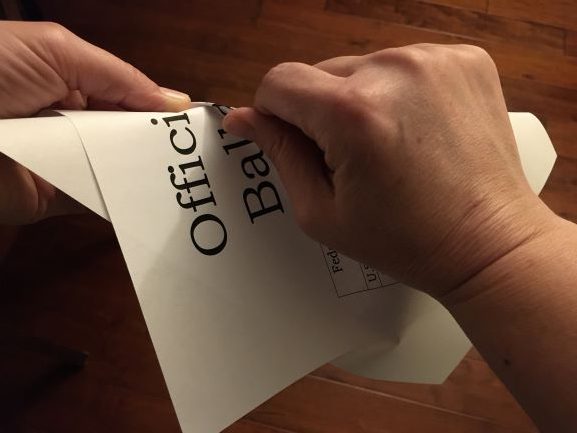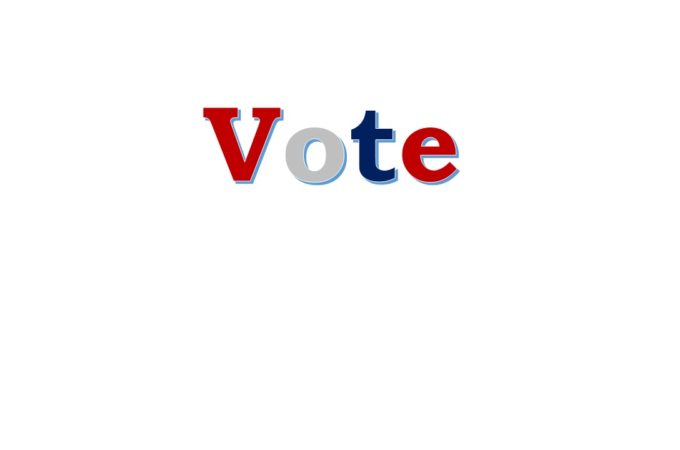
Fake News and Facts
We live in the Information Age where information on any subject is ubiquitous and easily accessible to millions of people around the world within seconds.
So, the Information Age has brought us everything we could possibly want, right?
Well, no. Not really.
Why?
Filter Bubbles.
What are filter bubbles?
Filter bubbles occur when internet users receive highly selective, personalized information through search engines (e.g., Google) and social media platforms (e.g., Facebook). The information provided to us is only a small subset of information on a given subject based on an algorithm’s assumption. Algorithms, employed by social media platforms and search engines, determine the information we receive using criteria such as your search history, online purchases, location, and other online behaviors. As such, filter bubbles provide a narrow view of the world and can distort reality. Next time you see news feeds on social media, recognize you are receiving them because of algorithms, not because they are the most important or accurate information available on a particular topic.
Facebook CEO Mark Zuckerberg reportedly remarked, “a squirrel dying in your front yard may be more relevant to your interests right now than people dying in Africa.” Zuckerberg’s reported remark is essentially a rationale for the use of algorithms. Unfortunately, algorithms may provide an internet user with a false sense of understanding of a particular event or topic. Filter bubbles are an important reason why individuals have difficulty understanding others who hold different social, political, or religious views. They create and deepen social divisions and partisanship. Further, information selected by an algorithm is not evaluated for its quality or accuracy. For example, the medical information provided to you by an algorithm may be from a salesperson who may appear to give medically sound advice as if it came from a respected medical professional.
Filter bubbles can create significant barriers to accurate information and compromises a holistic understanding of the world.
How can we avoid filter bubbles?
Delete your search history and cookies often. And, when searching for information, don’t log-in to any of your online accounts.
Net Neutrality
What is net neutrality?
Net neutrality is the idea that Internet Service Providers (e.g., Xfinity, AT&T) must provide equal access to all content and sources of information on the internet. In 2018, the Federal Communications Commission under the Trump Administration repealed the rules of net neutrality. As a result, Internet Service Providers can block or slow down access to particular content or websites at their discretion while favoring other content or websites that pay for priority access. Of course, the repealing of net neutrality rules provide a significant advantage to large companies whose primary objective is profit and have the capital to dominate the internet space. This does not bode well for an open and democratic internet environment. An online environment that is not governed by net neutrality principles can create significant barriers to information and abridges the concept of a marketplace of ideas.
What can we do about the repeal of net neutrality rules?
Contact your elected officials to advocate for net neutrality and for the passage of laws to ensure that net neutrality is the legal standard for internet traffic.
TV, Radio, and Print Media
The Federal Communications Commission’s Fairness Doctrine required TV and radio broadcast media to present fair and balanced coverage of controversial issues of public interest. In 1987, the Fairness Doctrine was rescinded. Today, we have a plethora of TV, cable, radio, and print media that are unabashedly conservative or liberal. Regardless of your political persuasion, it’s prudent to regularly read or view more than one media outlet to gain a holistic understanding of the social and political issues of the day and the various viewpoints surrounding them. Such a practice provides an insight into the crafting of information and helps you define your positions more clearly on significant issues.
Information Literacy
What is Information Literacy?
According to the American Library Association, “Information literacy is a set of abilities requiring individuals to recognize when information is needed and have the ability to locate, evaluate, and use effectively the needed information.”
Anyone can put information on the internet. Since information on the internet is not evaluated or vetted in any systemic way, it’s critical that each of us, as consumers of information, actively evaluate information.
It’s important to examine the source of the information as well as the information itself.
On the information source, ask yourself:
Where is the information coming from? Is the information coming from an individual, an organization, government agency, or business?
What authority does this individual, organization, government entity, or business have in providing the information?
What are their credentials in relation to the information presented?
What would you surmise is the motivation in providing the information?
Who is the intended audience?
On the information, ask yourself:
Is the information accurate?
Does the author provide documentation to corroborate their claims?
Does the information presented support their claims?
Is the information logical in its presentation?
Is the information specific and detailed?
Is the information presented objectively?
Is the information presented as fact or opinion?
Is the information current?
Is the information peer-reviewed?
How does the information make you feel? Do you think the information was intended to make you feel a certain way?
Conspiracy Theories
Conspiracy theories are especially pronounced during times of social crises or social change. During such times, people can feel vulnerable, powerless, and thus susceptible to belief in conspiracy theories. For some, belief in a conspiracy theory can be so deeply felt that any evidence raised against it may not be accepted. Sadly, conspiracy theories can be detrimental to civic discourse, cultivate distrust of important social institutions, and compromise beliefs in even basic facts. Are there real conspiracies? Yes, of course. President Lincoln’s assassination was a conspiracy, among others. Conversely, conspiracy theories are rather implausible stories or explanations of events or situations with invented or tenuous evidence that are often debunked. When confronted with a conspiracy theory, ask yourself the questions we discussed earlier regarding the information source and the content of the information itself.
Cheap Fakes and Deepfakes
A disturbing phenomenon is the development of cheap fakes and deepfakes. Cheap fakes are manipulated video and audio that alter the original context and meaning through the use of conventional techniques. Deepfakes are manipulated videos and images using AI technology that make it appear someone has done or said something they didn’t do or say. Deepfakes have become quite sophisticated and can be very convincing. Be cautious about believing everything you view or hear on video or audio without evaluating its source, content, and context. Ask yourself the questions we discussed regarding the information source and the content of the information itself.
These Fact Checking sites can be helpful in evaluating information:
Snopes.com
Politifact.com
Factcheck.org
Consume information actively. Don’t be victimized by misinformation.


